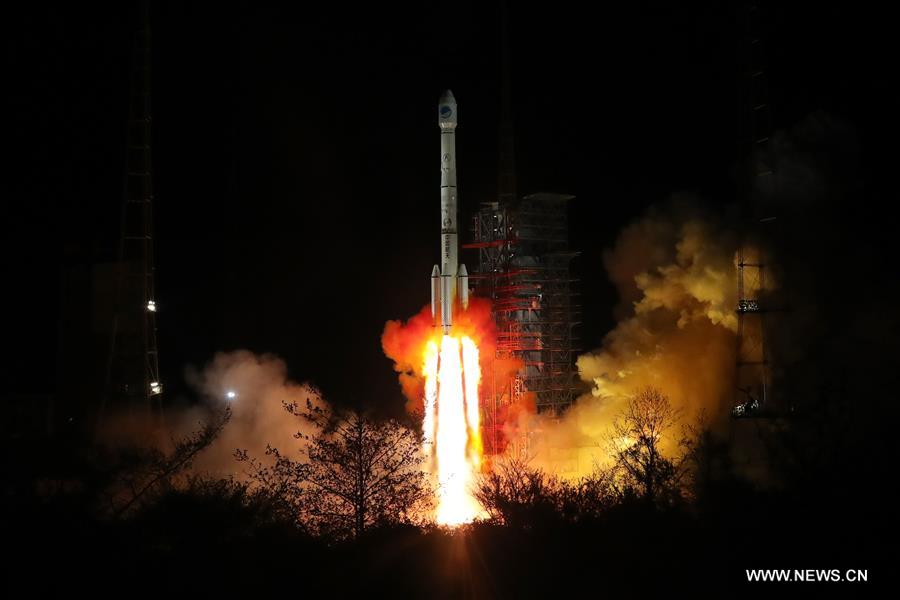China sends twin BeiDou-3 navigation satellites into space


XICHANG — China on Friday sent twin satellites into space with a single carrier rocket, adding two more members for its domestic BeiDou Navigation Satellite System (BDS).
The Long March-3B carrier rocket lifted off from Xichang Satellite Launch Center in southwest China's Sichuan Province at 1:56 a.m. The launch was the 269th mission for the Long March rocket family.
The twin satellites are coded as the 30th and 31st satellites in the BDS.
They entered orbit more than three hours after the launch and will work together with six previously launched BeiDou-3 satellites once they pass a series of tests.
The satellites and the rocket for Friday's launch were developed by the Innovation Academy for Microsatellites at the Chinese Academy of Sciences and China Academy of Launch Vehicle Technology, respectively.
Named after the Chinese term for the Big Dipper, the BeiDou system started providing independent services over China in 2000 and will serve countries along the Belt and Road by the end of 2018.
By around 2020, when the BDS goes global, it will have more than 30 satellites.
- New international body for mediation formed in Hong Kong
- Bogota to present Shanghai Award, a first for South America
- Chinese researchers make breakthrough in scanning the universe
- Aerial photos reveal Guizhou's dramatic karst landscape
- Guizhou's Huanggang village named on UN Best Tourism Village list
- Gansu's first captive-born panda cub turns one month old




































